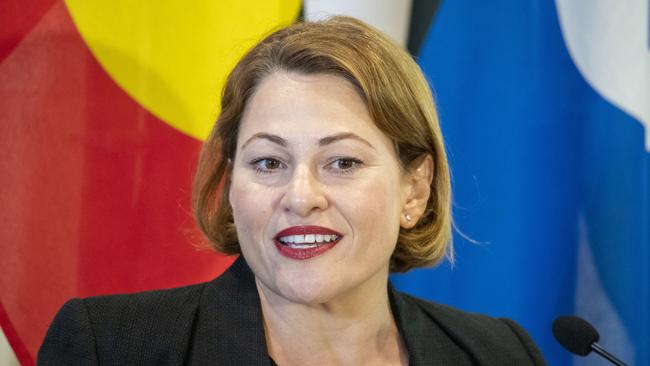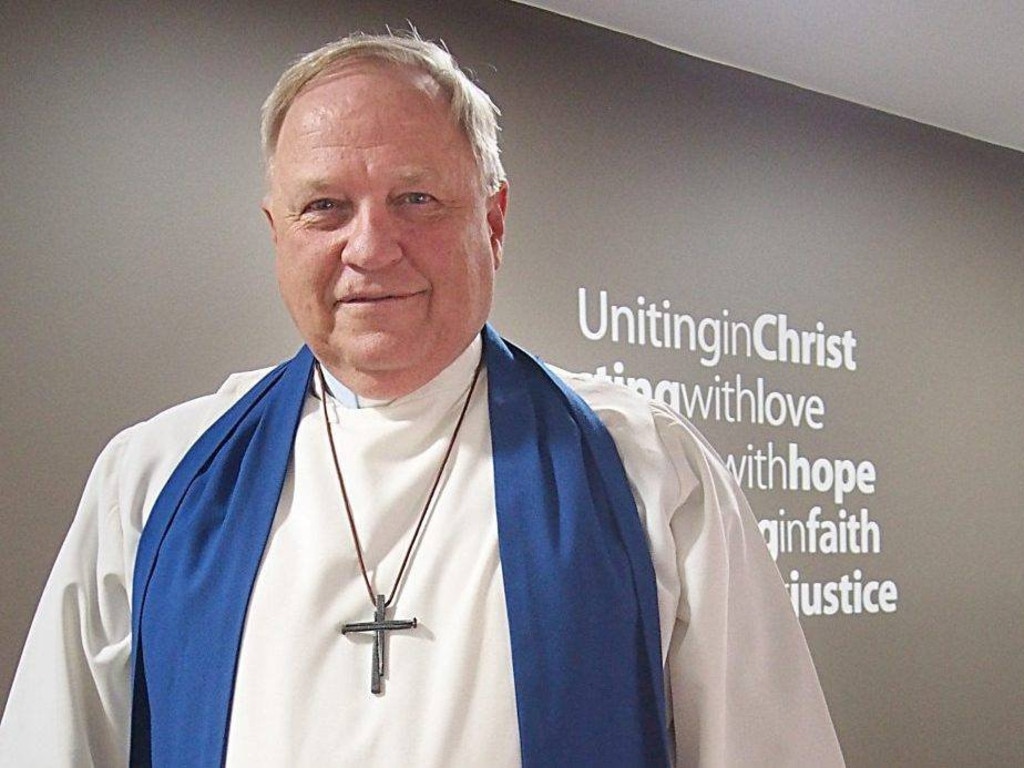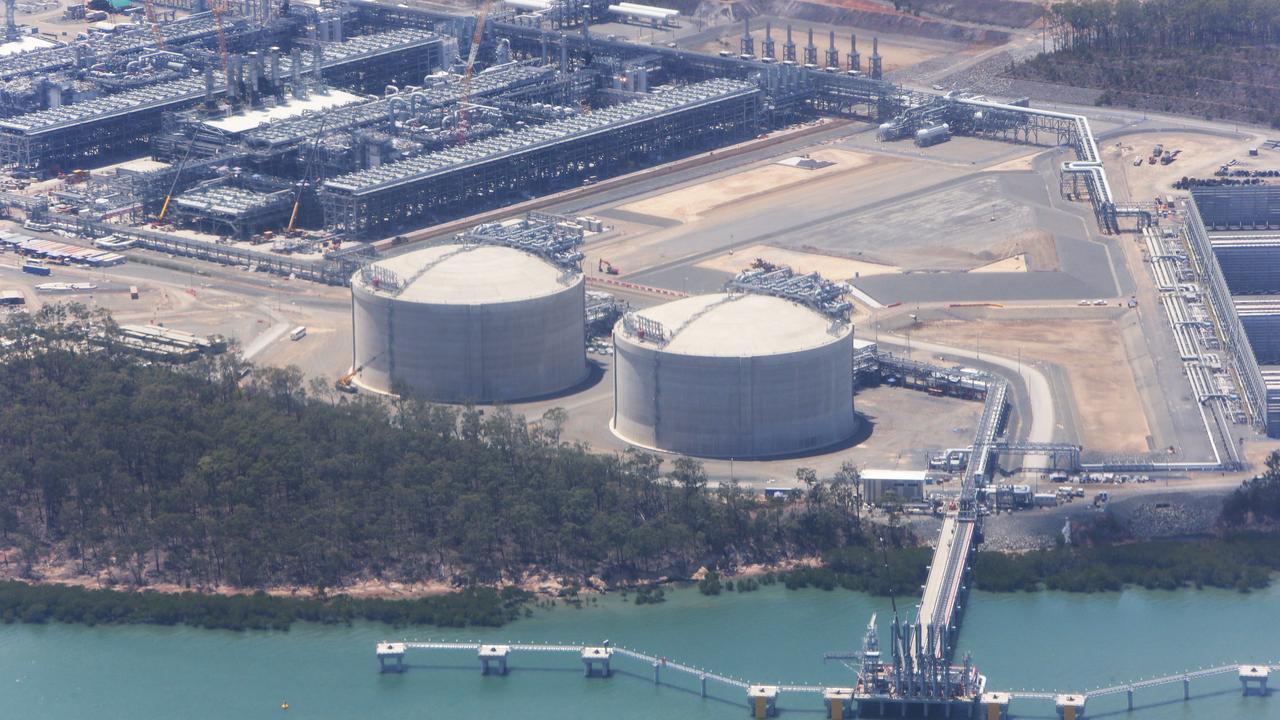‘Trad laws make it harder to prosecute ministers’
Queensland’s corruption watchdog has strongly criticised the Palaszczuk government’s so-called ‘Trad laws’.

Queensland’s corruption watchdog has strongly criticised the Palaszczuk government’s so-called “Trad laws” for making it harder, not easier, to prosecute ministers for failing to declare conflicts of interest.
Crime and Corruption Commission chair and barrister Alan MacSporran QC told the parliamentary committee considering the laws that the two new criminal offences proposed by the government fail to implement the watchdog’s recommendations.
“This limited reform, as proposed by the bill, is not with respect an effective measure to prevent corruption and not what was intended by the CCC’s recommendations,” Mr MacSporran said.
The CCC recommended new criminal offences be introduced after Deputy Premier Jackie Trad’s investment property scandal, in which she failed to properly declare her family company had bought a house near a proposed train station for her signature $5.4bn Cross River Rail project.
There was insufficient evidence to find Ms Trad had acted dishonestly or corruptly, but the CCC found similar behaviour should in future be made criminal.
Mr MacSporran told the parliamentary committee that he disagreed with the government’s decision to require ministers to be acting with a “dishonest intent” to be prosecuted.
And he criticised the requirement that the Director of Public Prosecutions be required to approve the charging of a minister with the new offences.
He said the practical effect was it would water down the effect of existing criminal offences for misconduct in public office, and fraud.
“You might think they’re making it harder to prosecute, not easier, so they’re lowering the bar, not raising it,” Mr MacSporran said.
“If our suggestion is adopted, it would make the Queensland parliament one of the leaders in this space worldwide.... this is such a fundamental plank in public confidence...in the way the democratic process works.”
The government’s proposed legislation would see ministers face a maximum two years’ jail if they dishonestly intend to not declare conflicts of interest at Cabinet meetings, or in their public registers of interest.
The proposed legislation also overhauls rules for political donations and election spending, elements which have been castigated for unfairly burdening charities and not-for-profit groups.
The legislation subjects third-party organisations who spend more than $1000 on “electoral expenditure” to a raft of new regulations and restrictions.
Many witnesses to the committee argued the new rules would force small charities and non-profit groups out of the political debate and away from public advocacy of their causes, a consequence the Human Rights Law Centre has warned could be unconstitutional.
Myles McGregor-Lowndes, a member of the Queensland Law Society’s not for profit law committee, said the new legislation would likely discourage his local church group from hosting its pre-election candidates’ forum.
Mr McGregor-Lowndes said most charities in Queensland were extremely small, risk-averse, and would be so afraid of falling foul of the complicated new rules that they would avoid anything political altogether.
Four in five Queensland not-for-profits have fewer than 100 members, with an annual turnover of less than $50,000, he said.
And 50 per cent of charities with a registered office in Queensland have zero staff, while 80 per cent have fewer than four staff members.
University of Queensland law professor Graeme Orr said he had never seen a more “crammed” timetable of concerned parties in 25 years of appearances at such parliamentary committee hearings.
Professor Orr warned that the law disadvantaged independent political candidates, compared to established political parties, by awarding them less public funding to run election campaigns.
“I can’t see how that can be constitutionally defended...you’ve got an unjustifiable discrimination built into the system,” he said.
Queensland Council of Social Services senior manager Laura Barnes said the new rules could threaten the work the public policy advocacy work the organisation did, on behalf of poor and disadvantaged Queenslanders.
Ms Barnes said it was not clear whether QCOSS would still be able to advocate for an increase in Newstart, or whether that would be classified as electoral expenditure and subject to restrictions.
“As a fairly large peak body with a membership revenue, we are a different case, but for a small organisation, they may choose (that) the complexity is too hard and (think) we’re not going to campaign,” Ms Barnes said.
“That voice is silenced.”
Many not-for-profits have suggested that the costs of complying with the new legislation, hiring a lawyer or an accountant or both, could outweigh the modest costs spent on electoral expenditure such as local newspaper advertisements, leaflet drops, or candidate forums.
Queensland Council of Unions research and policy officer John Martin said while the QCU generally supported the bill, the peak body had some “specific concerns”.
Dr Martin said the legislation could put extra limits on the advocacy unions could carry out on behalf of their members, and what unions’ capacity to communicate with their members about industrial issues.
Third-parties are restricted to spending $1m on election campaigns.
Political activist group GetUp! said it spent just over $162,000 on the last Queensland election campaign, so it was happy with the $1m threshold.
Similarly, Dr Martin said the QCU believed it was possible to “effectively campaign with $1 million”.
Speaking at a press conference in Warwick, Premier Annastacia Palaszczuk said the government was open to considering changes to the legislation before it was voted on in parliament.
“There may be changes, that’s why we have the committee process…this is what’s called a democracy,” Ms Palaszczuk said.





